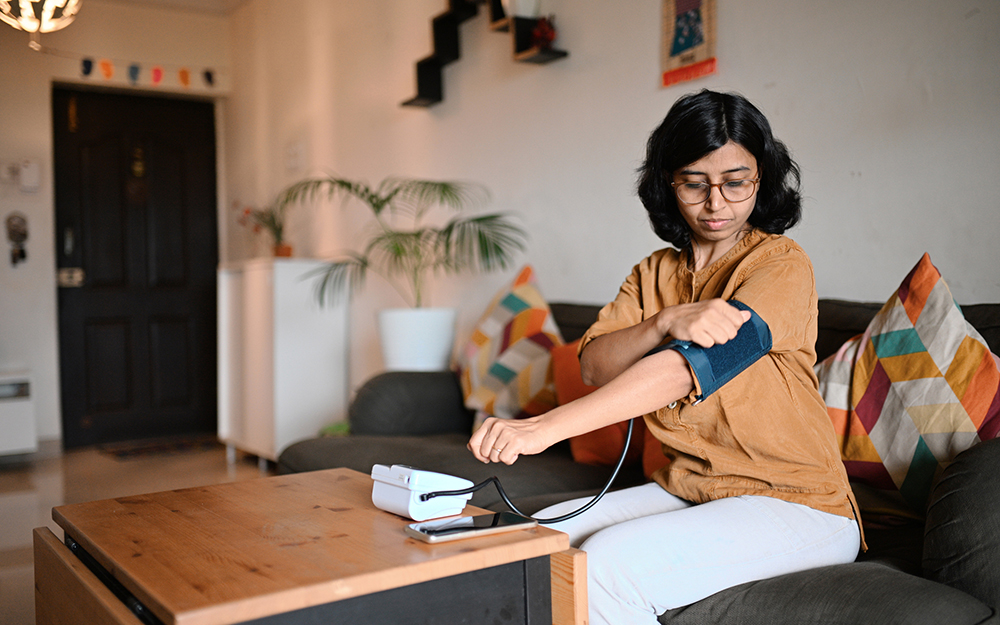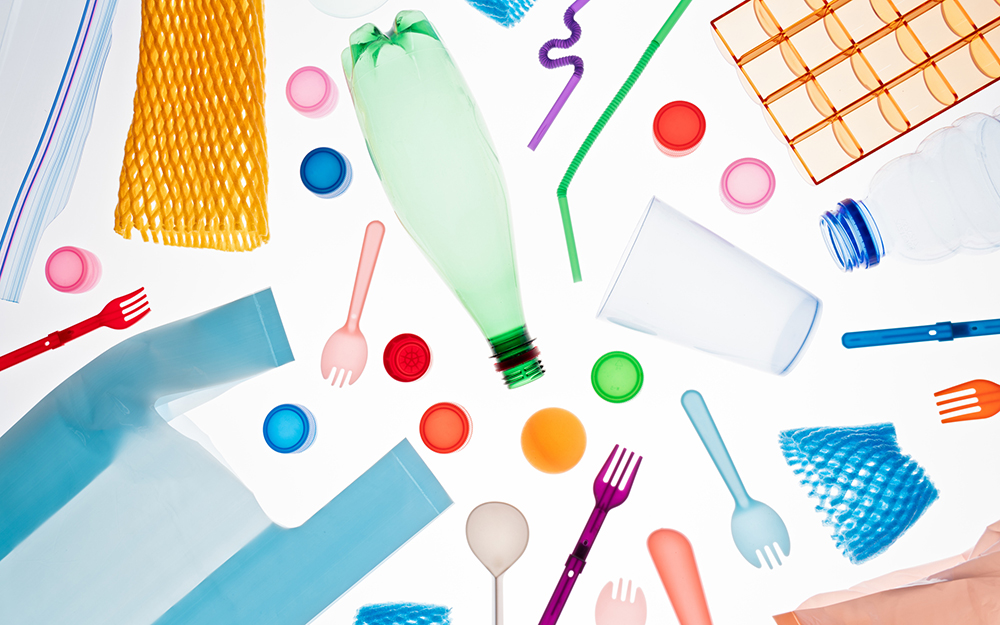Faces of Cedars-Sinai: Dr. Natalie Bello
Date
February 7, 2022

Date
February 7, 2022
Credits
Medical providers featured in this article

In Brief
{{cta-block}}
Meet Dr. Natalie Bello, director of Hypertension Research at the Smidt Heart Institute!
Born in New Jersey, she did most of her schooling in New York state before moving to Boston for her cardiology clinical research fellowships. She received her master's in public health from the Harvard School of Public Health and then moved to New York City to be on the faculty at Columbia University before landing at Cedars-Sinai. We chatted with her to learn more about her journey and the impact hypertension research has on patients.
"For a long time, there’s been an under appreciation of the need to study and understand the role of sex and gender in manifestations of cardiovascular disease."
What got you interested in your specific field of study?
Dr. Natalie Bello: It was a confluence of things: being in the right place with the right people at the right time. When I was doing my research training, a friend of mine and one of my co-fellows both developed preeclampsia, a condition of high blood pressure and some other organ damage.
I learned some more about it through their experiences, and I was pretty surprised to find out that women who had preeclampsia had a higher risk of cardiovascular disease. It really wasn't something that we were taught about at all during my medical training, and it opened my eyes to understudied areas in medical research and clinical care. Also, I realized that there was a tremendous opportunity for me to contribute to that field and help figure out what drives some of these processes: pregnancy and issues that impact women's health and wellbeing, including menstrual cycles, menopause, and all sorts of female- and reproductive-specific factors.
I also worked together with Dr. S. Ananth Karumanchi, one of my mentors from Boston, who is here at Cedars-Sinai now. He really revolutionized the field of preeclampsia and found a biomarker that could be used to identify women with preeclampsia. That also got me started on this journey that I'm still on.
What is the most exciting part of what you do?
NB: For me, I think the opportunity to really impact people's lives and make them healthier is the most exciting part of my job. Whether it's writing a paper or writing a grant or seeing a patient in clinic, knowing that what I'm doing can help them feel better and hopefully live longer and healthier is what drives me to do what I do and what brings me satisfaction with my job, also.
In Discoveries: Research Frontier: Pregnancy and Heart Health
Where do you see your field going within the next five years?
NB: Now I'm going to get on my soapbox. I think there is a bigger awareness of racial disparities in maternal outcomes, and in healthcare in general. Hopefully, both in research but also the clinical world, we will work hard as doctors, as scientists and as human beings to help improve outcomes for patients of all races and ethnicities to really level the playing field. And I think there's been tremendous investment in funding for these initiatives by Congress recently, and hopefully that will translate into more money for healthcare research to figure out how to implement important changes.
Also, from a public health perspective, I want to spread the word, because a lot of women don't even realize that cardiovascular disease is the leading killer of women and that having a complication in pregnancy can increase your risk for cardiovascular disease.
It's a twofold mission: increase patient understanding and awareness, but also drive science further to help figure out how to reduce risk after these important events in people's lives.
What advice would you give to someone who may be interested in pursuing a career in your field?
NB: I would say be curious and follow your passions. It's a long road sometimes to get to where you want to go, but if you believe in something and are driven by some mission or goal, that will help you get there. Ask questions and don't be afraid to think outside the box, because I think a lot of the really important advances in medicine and cardiovascular disease have come from people thinking differently than the traditional dogmas and questioning what we thought we knew.
Embracing Our Community: A Career Jump-Start for Talented Teens
What's the most challenging part of what you do?
NB: I think for a long time there's been an underappreciation of the need to study and understand the role of sex and gender in manifestations of cardiovascular disease. I think we really, as people, need to push—whether it's the government, pharmaceutical companies or anyone who's doing research—to make sure we're including people of diverse sexes and genders and ensure that, whether we're testing a new therapy or a new device, it doesn't cause harm in people of all sexes and genders equally. And if there are differences, we need to understand them and get a better knowledge of the disease pathophysiology and help people in different ways.
It's frustrating that there are many scientific questions that exist because either women weren't included in trials, or there weren't enough women in trials, or we had a hesitancy to include pregnant women or people who potentially were able to get pregnant in any sort of clinical trials or drug trials because of the fear of harming the fetus.
Advances in women's health have really been stymied and delayed a lot because of that. But there are now better rules from the Food and Drug Administration and from the National Institutes of Health that say we need to think about sex as a biological variable. I think we need to hold the pharmaceutical industry and other researchers to a high standard to make sure we're actually doing that so all of our patients can benefit.
In Discoveries: Making Birth Better: Kimberly Gregory, MD, MPH
If you were not in the medical world, is there a profession that you'd like to pursue?
NB: I always wanted to be an astronaut! I think if I weren't a physician, I probably would have been a detective. A lot of the things that I like about science—being driven to answer questions and being curious— would probably serve me well in that role, also.
What's on your music playlist?
NB: My playlist from last year is an interesting mix of Grateful Dead and '90s hip-hop. It's very fun, and it helps me concentrate. It's a little random, like the algorithms don't know what to do with me.
How do you like to spend your free time outside of work?
NB: I play tennis. One of the best things about moving to L.A. is that I can play all year long outside, which is fantastic.


.jpg)


